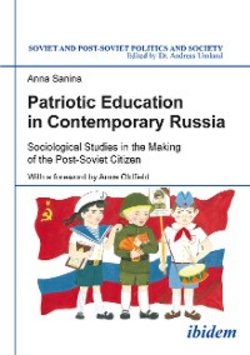Читать книгу Patriotic Education in Contemporary Russia - Aнна Санина - Страница 8
1.3 Book structure
ОглавлениеThis study does not pretend, of course, to uncover all shadows of contemporary patriotic education in Russia, its political echoes, and its ramifications in the international arena. Such an investigation would occupy many volumes. I have attempted to analyze the social features of the model of patriotic education in Russia in order to examine the process of the institution’s revealing and the role of social elements in that process. Patriotic education in Russia is a great example of how a political idea can lead to the formation of social structures, and how, in time, those social structures can lead to the restoration of the original political idea. Social structures are often insufficiently investigated within the study of political phenomena, and thus their role is undervalued. This book attempts to rectify this, at least in part, by focusing on the social elements of patriotic education.
Following the introduction, the second part of the book is devoted to the legislative and institutional backgrounds of public policy for patriotic education in the USSR and Russia. Drawing analogies with the Soviet era, some researchers consider the Concept of Patriotic Education, as well as the related governmental programs, as a foundation of the educational process in contemporary Russia. Through the analysis of national, regional, and local legal acts and programs, I argue that the poor quality of these documents disqualifies them from acting as such a foundation. Moreover, I suggest that a careful approach to public programming might be a good alternative to ideology, as the logic of public programs and their evaluation would provide clear objectives, concrete indicators, and measurable correlations of funds allocated for the programs with performed results. However, the quality of state programs for patriotic education is surprisingly poor. They have no real connection to the processes of patriotism formation and are replicated for their own sake and for the support of budget money. With mediocre indicators and performance evaluation, they cannot be considered useful even in maintaining the jingoistic patriotism often attributed to Russian patriotic education. For teachers and school administrators, they are mostly “empty things” stuffed with emotional phrases about the necessity of raising citizens devoted to their Motherland. The real processes, structures, and agents of patriotic education are mostly outside the scope of public programming.
